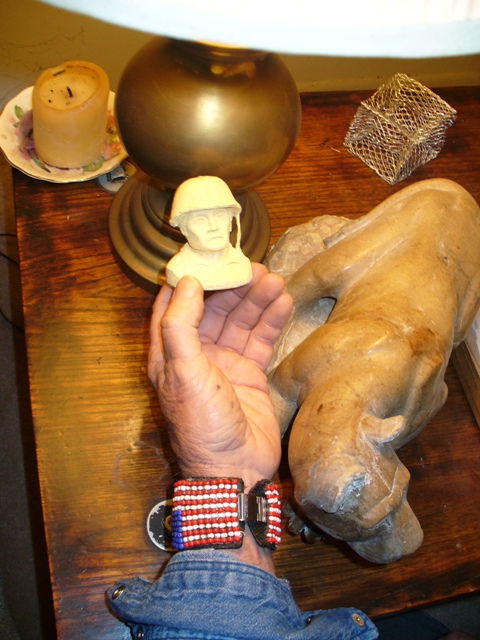"When a terrible thing happens, and it's your own damn fault, there is no closure."
Russell Banks
Until I sat in the darkened auditorium at St. Petersburg, Florida's, Eckerd College on the evening of January 20, listening to Russell Banks read these words from a short story, I had only faint knowledge of this literary giant. Across the aisle from me and hunched forward, sat an attentive Stewart O'Nan, whom I know to be a great writer. Both men led workshops in Eckerd's weeklong Writers-in-Paradise program and appeared at readings open to the public.
During an onstage interview in which Banks was asked if he had ever been a mentor, O'Nan rose from the audience to make a dramatic gesture of thanks. And, as we filed out of the auditorium, the author of West of Sunset, Emily Alone and Last Night at the Lobster said Banks was immeasurably generous as a mentor.
The night offered nourishing food for thought. Russell Banks can write so well he makes people laugh out loud one minute and weep the next. I admire such talent and the drive it took to refine it, starting with intense reading he began as a teenager in the local library, of books he selected "in alphabetical order." It was a delight to learn about him and add the name Banks to my 2018 to-read list.
I found it equally delightful to be at the Dunedin Fine Arts Center on the afternoon of January 23, viewing 663 miniature art works by 170 artists in an annual presentation by the Miniature Art Society of Florida.
The trick is to pace oneself to appreciate so much painstaking creativity. Magnifying glasses dangled next to 48 panels - each holding perhaps a dozen works - magnifiers permitting close inspection of sculpture, scrimshaw and paintings of every media and subject, in sizes as small as a 1 x 1.5 inches. Among the human figure, still life, wild life, marine and landscape works, my favorite was a 2.25 x 1-inch oval landscape on canvas made of paint strokes and infinitesimal embroidery stitches for its greenery and stone bridge. Sublime.
Such experiences suit my mission to be dazzled by life. I crave being reminded existence contains multitudes, that much of life is worthy of attention.
News on January 21 of the death of Ursula K. Le Guin, 88, a highly imaginative writer of science fiction and fantasy, reminded me of her creations. Her "Lathe of Heaven," a 1971 classic book, tells the story of a character whose dreams become reality. Ordered by a State psychiatrist to dream of a world where humans ceased to fight each other, he awakens to a world united ... under alien attack. For years, literati dismissed Le Guin for her fantasy and fiction, and, thankfully, she ignored her detractors. I count her among the best writers in my personal bibliotheca. Her lesson to me: Humans should dream better dreams.
The lesson I took from the words of Russell Banks: The terrible, unimaginable things now happening in this world are not "your own damn fault." Not if you are among those who "Resist and Persist," as a protest sign in a January 21 Women's March event said. True, one can be reduced to tears at having to sing, "We shall overcome," at a 2018 rally as millions sang in the 1960s. But, hey, we did not ask to usher in a world of hate and fear. So, I say keep picturing an end to the madness and comeuppance for the madmen, i.e., closure.
Final Words from the Pen of Ursula K. Le Guin
"As you read a book word by word and page by page, you participate in its creation, just as a cellist playing a Bach suite participates, note by note, in the creation, the coming-to-be, the existence, of the music. And, as you read and re-read, the book of course participates in the creation of you, your thoughts and feelings, the size and temper of your soul."
Sublime.
Note: I chose to share a photo of four works of art by my late brother, Ed Morrisey, that are in keeping with the miniature theme: a small and larger sculptor, a metal mesh block and the beaded bracelet he wore.
